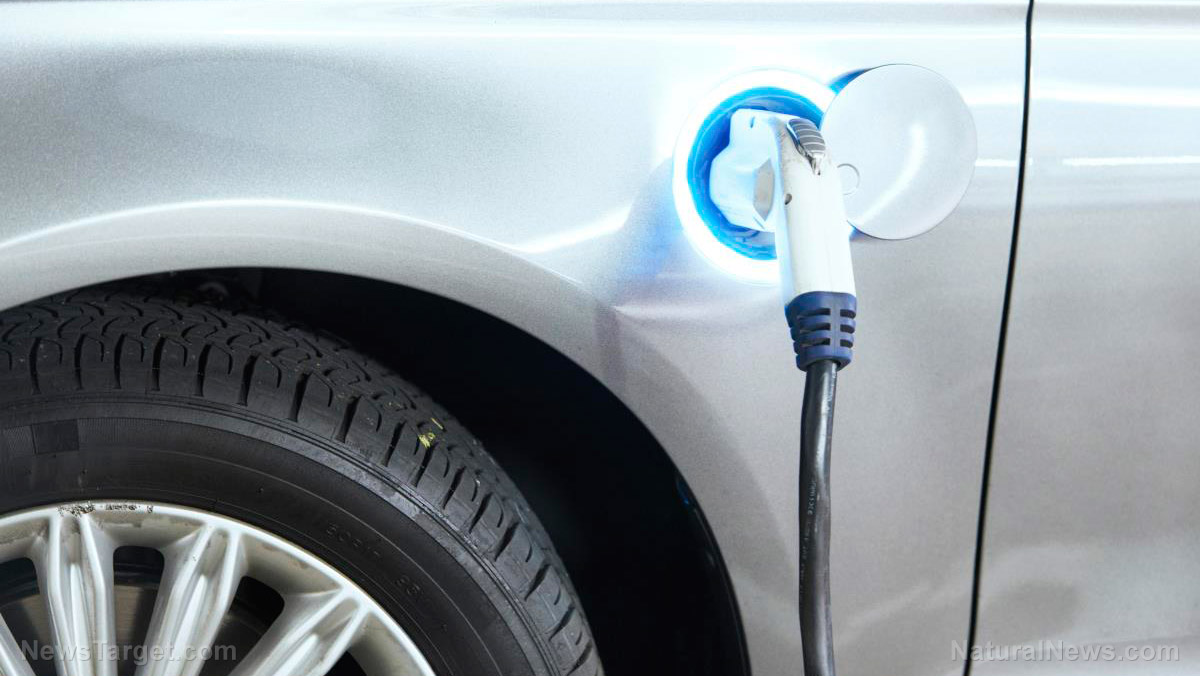Electric vehicle charging station in Scotland gets its electricity from tidal power
03/27/2021 / By Virgilio Marin

An electric vehicle charging station that runs on tidal energy went online this week. Made by Scottish energy company Nova Innovation, the charging point is located in the isle of Yell in Shetland, an archipelago of roughly 100 islands. The station gets its power supply from Nova’s Shetland Tidal Array, a four-turbine installation in the strait of Bluemull Sound between Yell and the isle of Unst.
In a statement on Monday, March 22, Nova described the project as “the first ever electric vehicle … charge point where drivers can ‘fill up’ directly from a tidal energy source.” The station is also equipped with a battery storage system to ensure a constant supply of electricity for vehicles.
The company has received funding from Transport Scotland, the country’s national transport agency – the Scottish government is one of many across the globe looking to move away from internal combustion engine vehicles. Last year, it announced a revised plan to stop the sale of new diesel and gasoline vehicles by 2030, which is two years earlier than its original plan and 10 years ahead of the proposed goal for the rest of the U.K.
Fabrice Leveque, the acting head of policy at World Wildlife Fund for Nature Scotland, heaped praise on the project: “It’s great to see tidal technology being used to help decarbonize part of Scotland’s transport sector in the islands.”
He added that Scotland is primed to become the leading developer of tidal stream technology, which he said will reduce carbon emissions and create green jobs.
“Our islands have an abundance of renewable resources, including wind, tidal and solar, which when harnessed with care, could bring multiple economic and social benefits to remote and rural communities across Scotland,” Leveque said. (Related: Renewable energy in the U.K. generated triple the amount of power from coal in 2017, study reveals.)
Firms exploring tidal power
Scotland is home to many other projects focusing on tidal energy, including the MeyGen tidal stream array off of northern Scotland. MeyGen is owned by London-based renewable energy company SIMEC Atlantis Energy.
The first phase of the massive facility is already complete and is made up of four 1.5-megawatt (MW) turbines. In 2019, the turbines exported a record-breaking 13.8 gigawatt-hours of electricity, which are enough to power around 3,800 British homes in a year.
Construction for the project’s next two phases is already underway. The second phase will add two improved turbines while the next phase will add another 49 turbines with a combined capacity of 73.5 MW. The company also said that the third leg will create 5,300 new full-time jobs.
Another project is the development of a floating tidal power farm by Scottish company Orbital Marine Power. Instead of being fixed to the seabed like a wind turbine, two turbines will be attached to a 230-foot-long floating platform.
The first turbine was connected to the grid last year and is due to be operational this year. Meanwhile, the second turbine is expected to be installed next year. Once completed, the farm will be able to produce enough electricity to meet the annual electricity needs of 1,700 British homes.
These developments will significantly ramp marine power generation, which remains low worldwide compared to other renewable energy sources. Recent figures from Ocean Energy Europe (OEE) show that only 260 kilowatts (kW) of tidal energy capacity and 200 kW of wave energy capacity have been added to Europe last year. Meanwhile, 14.7 gigawatts of wind energy capacity have been installed in the continent in the same year, according to industry body WindEurope.
While tidal energy has a long way to go, it does have an edge over other renewables such as wind and solar. Tidal energy generation is influenced by the well-known cycles of the moon, sun and Earth rather than the weather. This makes power generation predictable hundreds of years in advance, according to OEE.
Learn more about tidal energy and other renewable energy sources at Power.news.
Sources include:
Submit a correction >>
Tagged Under:
cars, charging stations, electric cars, electric vehicles, electricity, environ, environment, future tech, green energy, innovation, marine energy, marine power, ocean energy, power grid, renewable energy, Scotland, technology, tidal energy, tidal power
This article may contain statements that reflect the opinion of the author
RECENT NEWS & ARTICLES
COPYRIGHT © 2017 ENVIRON NEWS





















